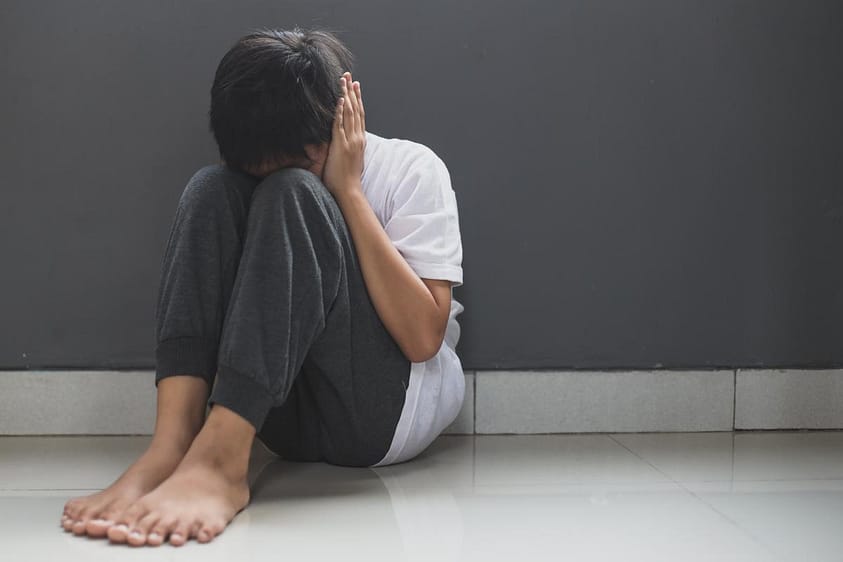Panic attacks put every nerve and system in the human body to the test. Your heart rate increases, and you experience a surge of cortisol and adrenalin. These physiological reactions to danger likely helped early humans run from enemies or chase down their prey. However, the effects of a panic attack may leave you feeling exhausted and weak. The Foothills at Red Oak Recovery®teen anxiety treatment center provides treatment and long-term recovery assistance for boys in North Carolina. For more information about recovery from panic attacks and other anxiety disorders, please reach out to our team today at 866.300.5275.
What Is a Panic Attack?
Anxious teens can have a panic attack that comes out of the blue. During a panic attack, you may experience dizziness, numbness, and shortness of breath. Additionally, your heart rate soars. Your body’s built-in fight or flight mechanism kicks in during an attack, and you may feel afraid or anxious just before the episode begins. However, panic attacks often occur with no warning.
Symptoms of anxiety include:
- Tense muscles
- Nervousness
- A constant sense of impending danger
- Increased heart rate
- Hyperventilation and trouble breathing
- Profuse sweating
- Trembling and shaking
- Physical weakness
Once dysregulated, it’s hard to calm the nervous system. When anxiety symptoms are triggered, they may cause a panic attack. Panic attacks are sudden and often include heart palpitations, numbness, and confusion. Panic attacks may occur without triggers. Prolonged stress is a common cause of panic attacks. During a panic attack, a person may dissociate and feel they are outside their body.
Foothills at Red Oak Recovery® has anxiety treatment programs to help adolescent and teen boys overcome panic disorders. We also offer treatment for co-occurring anxiety and substance use disorders.
If you want to know how to recover from a panic attack, try one of the following techniques.
Breathing Techniques for Panic Attack Recovery
During a panic attack, you hyperventilate, which doesn’t allow your body to get enough oxygen. By breathing slowly and deeply, you can help restore natural airflow. Breathe deeply from the belly and exhale slowly to oxygenate your body. Further, longer exhalations may help the parasympathetic nervous system activate and end the panic attack.
Using a Mantra to Refocus
Choose a mantra to refocus your attention. Refocusing your mind helps your body begin to recover from the panic attack. Affirmations can overcome negative stimuli and turn your thoughts around with positive images. Examples of mantras might include the following:
- I am safe
- I control my peace
- There is nothing to fear
- I want to be calm
Choose a mantra that’s meaningful to you.
Practice Low-Impact Movement
Low impact movements can regulate blood pressure, blood flow, and your nervous system. Yoga is an excellent example of a low-impact exercise that may help you recover from a teen panic attack. While practicing yoga, you consciously focus on movement and breath, and this activity facilitates the transition from flight-or-fight response to a state of relaxation. We offer several activities at our mental health treatment center to help young boys learn to re-center themselves after a panic attack.
Get Plenty of Rest
Panic attacks require enormous amounts of energy, which can take quite a toll on your nervous system. Relax and rest for a few days following an attack, so your body has time to recover. Our therapists recommend turning out the lights and taking a nap or relaxing with your eyes closed following an attack. You can choose another form of self-care, such as taking a warm bath. For young boys who want to learn how to recover from a panic attack, it’s essential to listen to their bodies and talk through their feelings with someone they trust.
Go Outside
Nature can regulate and calm the nervous system. If you’re able, try moving your body, changing locations, or changing posture when experiencing anxiety. A simple shift may be what your brain needs to break the anxiety cycle.
Reduce Caffeine, Nicotine, and Alcohol Intake
Caffeine and other stimulants make anxiety and panic attacks worse. Changing eating and drinking habits can greatly reduce panic attacks. To recover from a panic attack, drink water and consider adding electrolytes if you’re dehydrated, profusely sweating, experiencing confusion, or lightheadedness. Electrolyte imbalances can present with the same symptoms as anxiety attacks.
Anxiety Disorder Treatment in North Carolina
Millions of people suffer from anxiety disorders. There are several forms of this condition, including the following:
- Generalized anxiety disorder
- Social anxiety disorder
- Panic disorder
- Separation anxiety disorder
If you have panic attacks, you may have panic disorder. Rather than self-medicating with drugs and alcohol, get help to overcome your fear and reclaim control of your life. Additionally, we include family therapy treatment in each client’s recovery plan.
Find Hope and Help at Foothills at Red Oak Recovery®
Don’t let anxiety make you a slave to substance use disorders. At Foothills at Red Oak Recovery®, we offer psychological testing that helps pinpoint the cause of panic attacks. Our clients also receive substance abuse treatment. Reach out to the anxiety treatment center at Foothills at Red Oak at 866.300.5275 today for more information.





